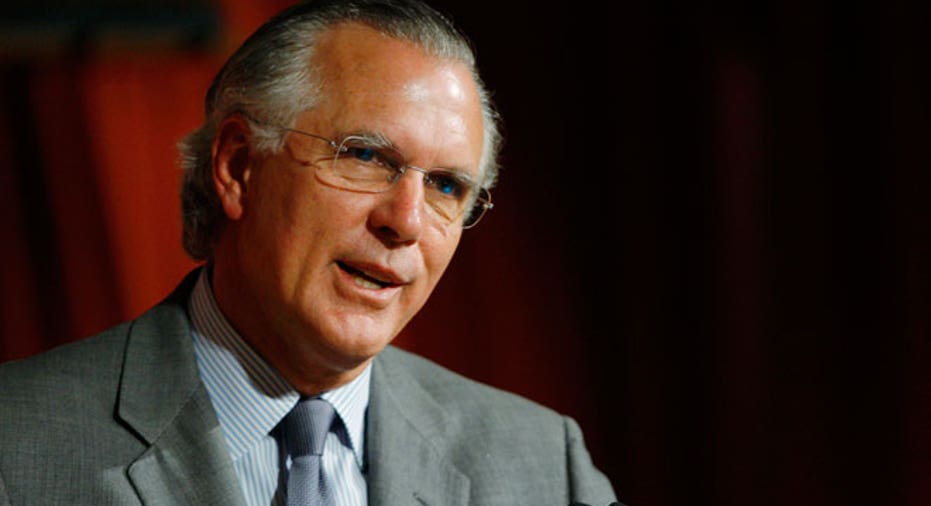Fed's Fisher: Economic Growth 'Anemic,' But Will Dodge Recession

A top Federal Reserve official Friday called current U.S. economic growth "anemic" but suggested the country would avoid a "double-dip" recession--though the economy is "on an edge."
"It's a very slow, painfully slow slog--it's anemic," Richard Fisher, president of the Federal Reserve Bank of Dallas, said in an interview with Fox Business a day after the government reported the economy expanded by just 1.3% in the second quarter. "So this is not robust growth. It's certainly not enough to replace jobs, which is what everybody wants."
"I'm not concerned about a double-dip," he said. "But on the other hand, we're on an edge here. And 1.3% is not overwhelmingly strong."
Fisher is a current voting member of the Fed's policy setting body, the Federal Open Market Committee. But he has opposed recent Fed stimulus efforts, arguing they will have little impact and that additional economic growth will come from better fiscal policy and other steps that remove uncertainty and promote confidence.
"Until there's more confidence out there, I cannot see any robust growth being restored," Fisher said.
At the end of its latest meeting last week, the FOMC approved a new stimulus measure, selling $400 billion of short-term securities to buy longer-term ones -- an effort to push down long-term interest rates popularly known as "Operation Twist."
Fisher was one of three bank presidents who voted against the move. The trio also voted against a decision In August to keep short term interest rates low through mid-2013.
Fisher said he believed earlier FOMC actions to flush the economy with cash at low interest rates had been effective at creating liquidity but that employers simply have shown little interest in tapping loans or capital in the current policy environment.
"We've done an awful lot," he said. "Let's use a simple analogy: We've refueled the gas tank of the automobile of the economy. But people have to be incented to press on the gas pedal and engage the transmission and move that car forward... the car being job creation and economic prosperity."
"The liquidity is there. The cost of money is almost nil," Fisher said. "Some people argue, such as me, we've gone a little bit too far. Some say it's just right. But that's not the issue. I believe the Fed has done its job. And we'll be pushing on a string if we continue to move down this path unless the fiscal and other authorities incent our businesses to put that money to work, and that's where we are right now."
"We don't need more monetary stimulus," he said. "We need to have a more efficient fiscal mechanism that incents private businesses -- and that's where jobs are created in America."
He said he was "encouraged" by the ongoing budget discussions and negotiations in Washington.
"The president and the Congress are actually starting to talk about it," he said. "That's all they talk about now and that's good."
Fisher said employers will start hiring again "when they have greater clarity of what are their taxes going to be, what are the spending patterns going to be that affect them, whether their subsidies will go to their customers or the system or whatever the spending may be that Congress has that it's their purview, and then what kind of regulations affect them."
"If you lift those clouds," he said, "Even if they don't like the outcome, and you have certainty, then they know what they can drive around and they can propel the economy forward."
Like other officials, Fisher is concerned about Europe's debt crisis and its possible impact on the U.S. economy. But he declined to comment on specific European bailout efforts.
"Our biggest market for selling into is Europe," he said. "(But) it's not for us to prescribe what they need to do to pull the socks up for that economy."
Fisher, one of the Fed's most strident inflation "hawks," said that with inflation indicators tame, he is "not that worried" about re-surging inflation right now.



















